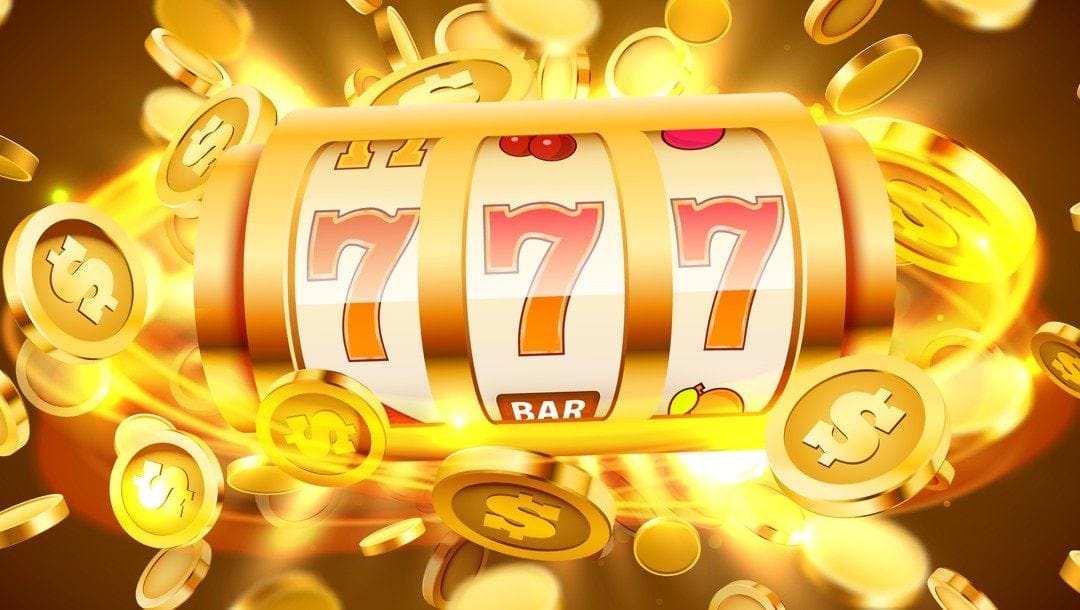Slot games have a unique psychological appeal that captivates millions of players worldwide. At the heart of this appeal is the combination of excitement and anticipation that slot games create. Each spin of the reels brings with it the possibility of winning, which triggers a surge of adrenaline and keeps players engaged. The unpredictability of the outcomes, coupled with the chance of hitting a big win, creates a powerful sense of excitement that drives players to keep spinning.

This excitement is heightened by the instant feedback that slot games provide. Unlike other forms of gambling, where the outcome may take some time to be determined, slot games offer immediate results. Players know within seconds whether they have won or lost, which keeps them on the edge of their seats and eager to play another round. The rapid pace of the game and the potential for instant rewards make slot games particularly appealing to those who enjoy fast-paced, high-energy activities.
Moreover, the anticipation of winning is a key factor in the psychological appeal of slot games. The moments leading up to the outcome of a spin are filled with suspense, as players watch the reels spin and hope for a winning combination. This anticipation creates a sense of excitement and emotional arousal that keeps players engaged. Even when the outcome is not favorable, the anticipation itself is rewarding enough to encourage players to continue playing.
The Role of Rewards and Reinforcement in Slot Games
Slot games are designed to tap into the brain’s reward system, which is responsible for producing feelings of pleasure and satisfaction. When players win, their brains release dopamine, a neurotransmitter associated with pleasure and reward. This release of dopamine reinforces the behavior, making players more likely to continue playing in the hopes of experiencing that pleasurable sensation again.
This process of reward and reinforcement is central to the psychological appeal of slot games. Slot games often use variable ratio reinforcement, a type of reinforcement schedule where rewards are given out on a random basis. This means that players never know when the next win will come, which keeps them engaged and motivated to keep playing. The unpredictability of the rewards creates a powerful psychological drive, as players are constantly chasing that next win.
In addition to monetary rewards, slot games often incorporate other forms of reinforcement, such as visual and auditory stimuli. For example, winning a spin may be accompanied by flashing lights, celebratory sounds, and animations, all of which enhance the feeling of reward. These sensory reinforcements further strengthen the association between playing the game and experiencing pleasure, making it even more difficult for players to stop.
The Impact of Near Misses on Player Behavior
One of the most intriguing aspects of slot games is the concept of the “near miss,” where the outcome is almost a win but falls just short. For example, a player might see two matching symbols on the reels and a third symbol that is close but not quite aligned. Despite being a loss, near misses are often perceived as almost winning, which can have a powerful psychological impact on players.
Near misses are particularly effective at motivating continued play because they create the illusion that a win is just around the corner. Players may feel that they were “so close” to winning, which can increase their determination to keep playing in the hopes of finally hitting the jackpot. This effect is known as the “near-miss effect,” and it plays a significant role in the addictive nature of slot games.
Research has shown that near misses activate the same brain regions as actual wins, leading to increased arousal and motivation to play. This means that even when players do not win, the experience of a near miss can be rewarding enough to keep them engaged. Slot games often capitalize on this by incorporating near misses into the gameplay, ensuring that players are constantly enticed to keep spinning the reels.
The Role of Themes and Narratives in Slot Games
Themes and narratives play a crucial role in the psychological appeal of slot games. By incorporating engaging themes, such as adventure, fantasy, or popular culture, slot games create immersive experiences that draw players in. The narrative elements of a slot game, such as storylines, characters, and quests, add depth to the gameplay and make it more engaging.
For example, a slot game themed around ancient Egypt might include symbols like pyramids, pharaohs, and hieroglyphics, as well as a storyline involving the search for hidden treasures. Players may feel like they are part of an adventure, which enhances their emotional investment in the game. Thematic elements also provide a sense of escapism, allowing players to temporarily immerse themselves in a different world and forget about their everyday concerns.

Narratives in slot games also contribute to the feeling of progression and achievement. Many modern slot games include bonus rounds, levels, or missions that players can unlock as they play. These elements create a sense of accomplishment and reward, as players feel that they are making progress and achieving goals within the game. This sense of progression can be highly motivating, encouraging players to keep playing to see what happens next in the story.
The Social Aspect of Slot Gaming
While slot games are often thought of as solitary activities, they can also have a social component that enhances their psychological appeal. Online slot thailand games, in particular, often include social features such as chat rooms, leaderboards, and multiplayer options. These features allow players to interact with others, share their experiences, and compete for high scores or achievements.
The social aspect of slot gaming can create a sense of community and belonging, as players connect with others who share their interests. This sense of connection can be particularly important for players who may feel isolated or lonely in their everyday lives. By providing a platform for social interaction, slot games can fulfill players’ needs for socialization and companionship, making the experience more enjoyable and rewarding.
In addition to social interaction, slot games often incorporate elements of social comparison, such as leaderboards or rankings. Players may feel motivated to compete with others and achieve higher scores or rankings, which can enhance their sense of achievement and satisfaction. The desire to outperform others can drive players to keep playing and improve their skills, adding an additional layer of motivation to the gaming experience.
The Role of Accessibility and Convenience in Slot Gaming
One of the key factors contributing to the psychological appeal of slot games is their accessibility and convenience. With the advent of online casinos and mobile gaming, players can access slot games anytime, anywhere, with just a few taps on their smartphones or computers. This ease of access makes slot games an attractive option for players who are looking for quick and convenient entertainment.
The convenience of slot gaming is further enhanced by the availability of a wide variety of games. Players can choose from hundreds of different themes, styles, and gameplay mechanics, ensuring that there is always something new and exciting to try. The ability to switch between games and explore different options keeps the experience fresh and engaging, preventing boredom and encouraging continued play.
Additionally, the low cost of entry for slot games makes them accessible to a wide range of players. Unlike other forms of gambling that may require significant financial investment, slot games often allow players to bet small amounts, making them a low-risk form of entertainment. This affordability, combined with the potential for big wins, makes slot games an appealing choice for both casual and serious players.
The Impact of Slot Game Design on Player Experience
The design of a slot game plays a significant role in shaping the player experience and contributing to its psychological appeal. Game designers carefully craft every aspect of the game, from the visuals and sound effects to the gameplay mechanics and user interface, to create an engaging and immersive experience.
Visual and auditory stimuli are particularly important in slot game design. Bright colors, flashing lights, and dynamic animations capture players’ attention and create a sense of excitement. Sound effects, such as the ringing of bells or the clinking of coins, enhance the feeling of reward and reinforce the association between playing the game and experiencing pleasure. These sensory elements work together to create an environment that is stimulating and enjoyable, encouraging players to keep playing.

The gameplay mechanics of slot games are also designed to maximize engagement. Features such as free spins, bonus rounds, and progressive jackpots add variety to the gameplay and increase the potential for rewards. These elements create a sense of anticipation and excitement, as players never know when they might trigger a special feature or win a big prize. The combination of rewarding gameplay and stimulating design keeps players engaged and motivated to continue playing.
In conclusion, the psychological appeal of slot games is multifaceted, involving a combination of excitement, rewards, social interaction, and accessibility. By understanding the factors that drive players to engage with slot games, game developers can create experiences that are not only entertaining but also deeply satisfying. Whether it’s the thrill of the spin, the allure of a near miss, or the immersion in a captivating theme, slot games offer a unique and compelling form of entertainment that continues to captivate players around the world.
Ralph L. Hopkins is a casino enthusiast and expert with a deep-seated passion for the world of gambling. With over two decades of experience in both land-based and online casinos, Ralph brings a wealth of knowledge and insights to MadeInLeeds.tv. His dedication to understanding the intricacies of casino games and the ever-evolving landscape of the gambling industry makes him a trusted voice among fellow enthusiasts.




